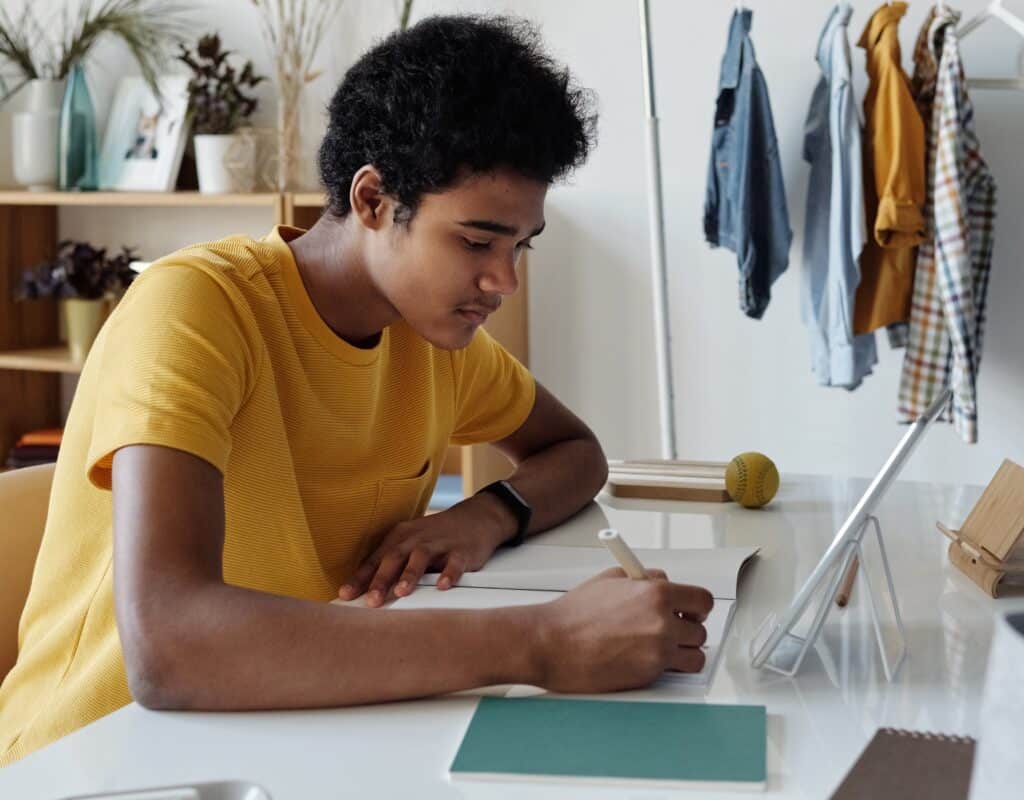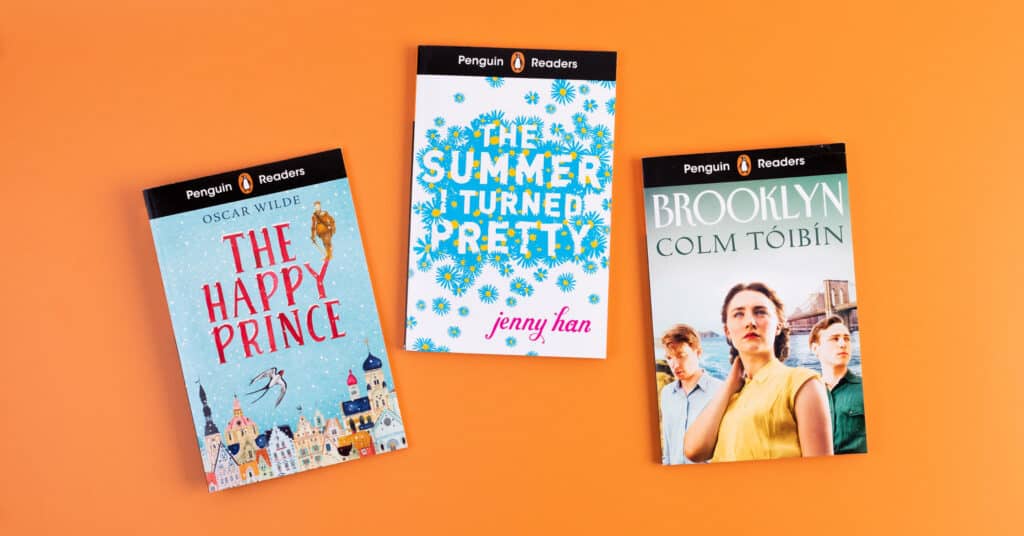The Benefits of Using Non-fiction in the Classroom
Non-fiction books provide a unique learning opportunity in the classroom, says ELT consultant Dani Mundy. She discusses their benefits to students and offers activities from two of the Penguin Readers range, to kick-start your classroom discussions.
Non-fiction books can often be a welcome relief for reluctant readers. They provide an opportunity for reading and learning that is not based around a traditional beginning, middle and end.
Non-fiction books can provide engaging and stimulating topics that can be used for debates and discussions, which are ideal for classrooms and learning environments. Finding non-fiction books that we know as teachers will inspire our learners and help engage students who do not normally enjoy reading. Interestingly, it sometimes doesn’t occur to people that working with non-fiction counts as traditional ‘reading’.
Here, we focus on some ideas and activities from two non-fiction books from the Penguin Readers range. Both topics provide not just a base for reading, but for a whole host of additional activities.
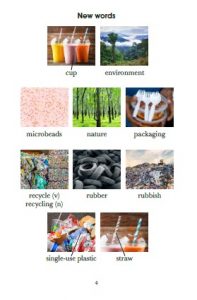
How can we use this page?
- Use the pictures to elicit information from the learners. This can be done as a pre-reading task, during reading and post-reading to consolidate key vocabulary.
- Use the pictures to give opinions on the problems we face with plastic.
- Use the pictures as a discussion tool before you show the cover of the book. Ask the learners to come up with the title and blurb based on the initial pictures.
- A marathon story – this activity can be done pre-reading, during reading and post-reading. Ask the students to stand up in a circle with the new words page. Each student must give a sentence and the next student must continue the sentence. They need to try and give as much detail as possible for each picture whilst turn-taking. For lower-level learners, you can do the same style of activity but focus purely on word associations.
Example word association:
Cup / drink / liquid
Recycle / reuse / remake
Rubbish / litter / garbage
Using project work to coincide with the book topic
Make a recycling corner in the classroom. Ask learners to work in groups and select some of the recyclable objects. Ask the learners to put the items they have selected to good use and to try and create something and then present their ideas to their peers.
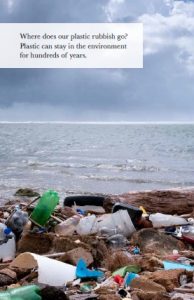
Discussion and debate
Use the page above to start a discussion about the impact on the environment from the use of plastic. Ask the learners to focus on the ocean and think of all the possible negative effects.
Extension: This could lead to a debate. Give each learner role cards for the part they have to play in the debate.
Examples of role cards to discuss the negative impact of plastic on the environment.
1) Local residents
2) Politician
3) Greenpeace member
4) Student
5) Parent
Top Tip!
Role cards help provide a safe learning environment in a debate-style activity. Often, students are given a role orally and asked to start the task. Then, a flood of hands go up asking questions about their role. Role cards can help eliminate this doubt.
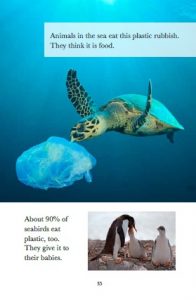
Talk about the picture and what is happening. Put students into pairs or small groups and ask them to come up with a caption for the picture. This provokes student discussion and collaboration.
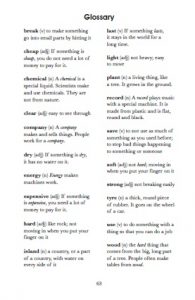
Penguin readers allow learners to consolidate the new vocabulary they have learned. The glossary at the back of the book provides an extra resource for teachers that can be used in a variety of ways, too. Consolidating vocabulary is an integral part of the language learning process: learners need exposure, repetition and consolidation activities before they can use the word in their active vocabulary.
Learning vocabulary cycle
- See it (initial exposure to a word or phrase)
- Hear it (repetition in a variety of ways)
- Use it (becomes active vocabulary)

Running dictation task
Use the definitions of the key words from the glossary page of the book Plastic. Put the definitions on a wall in the classroom and then put the learners into groups. Ask one student at a time from each group to go to the first definition, remember as much as they can and relay it to their group. The group listens and rewrites the definition, the next person then goes up for the next definition. Once they have all the definitions, they have to read them and try and come up with the key word for each definition.
A running dictation focuses on high student talk time, tt is a fun and engaging task to consolidate vocabulary. It is a multi-skilled activity – it involves reading, listening, speaking and a small amount of writing.
For lower-level learners, you can give them the laminated key words; they have to match up the definitions from the running dictation task appropriately.
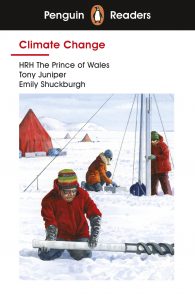
Climate Change provides a current and thought-provoking topic for the classroom. It is a huge subject and something that should be discussed and incorporated into our classrooms to fully educate and bring awareness to students.
HRH The Prince of Wales is extremely vocal about climate change and plays an active role in education related to this topic, and wrote the original text for the book. Using HRH The Prince of Wales as a focal point for activities related to the book can provide something interesting for learners in the classroom.
Roleplay task
Put students into groups (depending on numbers in your class) and ask them to come up with five questions they would like to ask HRH The Prince of Wales. The questions can be based on:
- Their opinions on climate change.
- A pre-reading activity on the topic.
- a post-reading activity based on their understanding of the book.
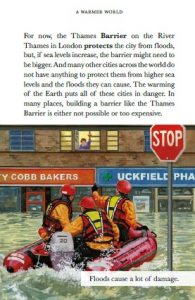
Take the above page in Climate Change. Before reading, ask students to do some research into flooding in various countries around the world. Ask them to present information on the geographical positions of the country and the impact flooding has. Some ideas for countries to discuss would be Bangladesh, Pakistan, Ecuador, China and The UK.
Use the ideas from the book and from their findings to discuss future predictions for climate change. This can be used as a consolidation of future tenses bringing a grammar element to the discussions.


These non-fiction books provide stimulating and current topics to help engage more reluctant readers. They also provide useful topics for discussion and project work in the classroom. Non-fiction books can be used across the curriculum and not just in the English Language Classroom.


